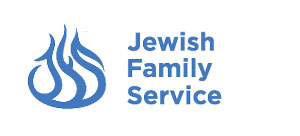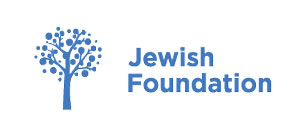
Shalom Austin Jewish Family Service Announces Case Management Services
Milo Bissett and Hilary Katz. Photos credit: Dave Hawks
By Hilary Katz and Milo Bissett
Shalom Austin Jewish Family Service recently announced it now offers case management services to the community. The National Association of Social Workers defines case management as “a process to plan, seek, advocate for and monitor services from different social services or health care organizations and staff on behalf of a client.” But Shalom Austin JFS leadership and staff members define case management as walking beside clients to provide support and comfort through the trials and tribulations everyone faces in life.
Shalom Austin JFS case management services are available to anyone who needs support advocating for themselves, navigating resources within Austin, or struggling with conflict or instability in their life. Types of services and referrals to resources that Shalom Austin JFS offers include mental health resources, COVID-19 information, employment assistance, financial coaching, basic needs items, immigration legal services, food assistance, federal and state benefits and housing and utilities.
Case management consists of four elements: intake, needs assessment, service planning, and monitoring and evaluation.
Intake is the first contact between a case manager and a client. During this meeting, the case manager gathers demographic information about the client and identifies any immediate needs. This is also when trust and relationship building starts. This is helpful so a case manager can determine if a client would benefit from Shalom Austin JFS services. Case managers are knowledgeable about local resources and can make referrals and connections to any outside resources on behalf of each client.
During the needs assessment step, a case manager takes an in-depth look at each client’s situation to identify client’s strengths and barriers to achieving stability and success. This is an ongoing process, as clients’ lives evolve over time. The case manager uses a strengths-based approach by supporting clients’ goals and focusing on the successes and attributes of each client.
The service planning stage is when a case manager establishes specific goals and the actions that will be taken to meet those goals. Together, the client and the case manager create measurable steps to work toward specific, obtainable outcomes. This is a living document that will develop as each client’s priorities change.
The monitoring and evaluation stage supports the main goal in case management, to support each client in obtaining self-sufficiency and to empower each client. In order to monitor clients’ growth, the case manager meets each client regularly to continuously monitor their progress. Building trust and accountability is important for successfully obtaining outcomes.
Case managers Hilary Katz and Milo Bissett joined Shalom Austin JFS in January 2020 and are looking forward to getting to know the Jewish community in the coming months.
For more information, visit shalomaustin.org/jfs, email jfs@shalomaustin.org, or call 512-250-1043.
Latest Posts

Shalom Austin Jewish Family Service Opens New Doors to Serve the Community
Krasoff Jewish Family Service Building Ribbon Cutting ceremony. Front to back, left to right: Molly Krasoff, Steve Krasoff, Amanda Krasoff, Rabbi Amy B. Cohen, Janet S. Elam, Heather Krol, Ari Franklin, Rabbi Daniel A. Septimus, Steve McDaniel, Nancy Shapiro, Beth...

Over 450 Austinites Unite at Annual Breakfast for Israel
Event Co-chairs and Jewish National Fund-USA Austin Board with Keynote Speaker Avi Melamed (back row, middle) Credit: Andrew Holmes On October 9, 2024, just two days after the first anniversary of the horrific terrorist attacks in southern Israel, over 450 Austin...

In Times of Darkness, Together We Can be the Light
As I write this column, I am currently at The General Assembly of Jewish Federations of North America with fifteen other volunteer and professional leaders of our community. It is at conferences such as The General Assembly where I always walk away feeling...




HEALTH & WELLNESS
Fitness
Swimming
Tennis & Pickleball
Sports
EDUCATION
Jewish Culture & Education
Early Childhood Program Preschool
After School & Childcare
Camps
ARTS & CULTURE
Literary Arts
Visual Arts
Theatre & Film
Dance
COUNSELING & SUPPORT
Jewish Family Service
Counseling & Groups
Case Management
References & Resources
Copyright Shalom Austin 2025. Privacy Policy.
